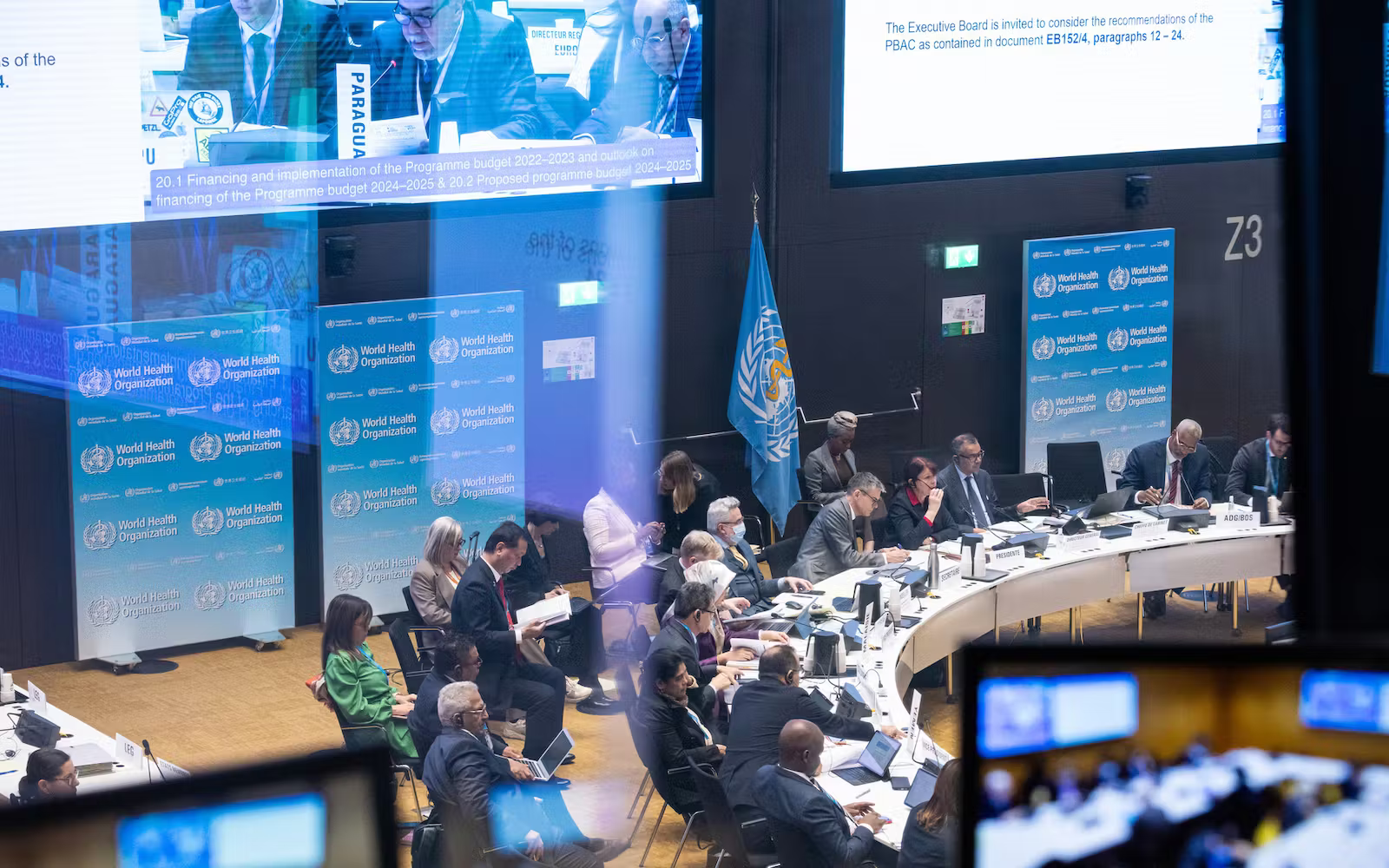Every January, the Executive Board of the World Health Organization (WHO) meets at the UN agency’s headquarters in Switzerland to establish priorities for the year ahead and set the agenda for the World Health Assembly in May, when all 194 UN Member States convene to drive global progress toward better health for everyone, everywhere.
Right now conflict, extreme weather, and rising levels of food insecurity and poverty are wreaking havoc on our health, especially the most vulnerable among us, while testing the international community’s capacity and political will to respond. The upcoming Board meeting is expected to cover a wide range of challenges, from the impact of violence in Gaza and Ukraine to the effects of plastic and chemical pollution on the human body, as well as major milestones this year, like the 50th anniversary of the UN’s expanded immunization program. Underpinning all of this is the urgent need for universal health coverage.
2024 is also expected to be a major year for immunization, with the rollout of two new malaria vaccines and two new polio vaccines, bringing the world closer to eradicating some of the planet’s deadliest diseases.
Another massive yet microscopic threat that will top the agenda: antimicrobial resistance, a health risk that knows no borders and will require a whole-of-UN response.
This year could also witness major reforms in how WHO is funded and a potential overhaul in the agency’s approach to emergency prevention, preparedness, and response.
Ahead of this month’s meeting, I spoke with two UN Foundation colleagues, Senior Director for Global Health Lori Sloate and Global Health Policy Officer Molly Moss, about the most critical issues on this year’s agenda.
HUMANITARIAN CRISES
During a special session in December, WHO’s Executive Board adopted a resolution on Gaza calling for “immediate, sustained and unimpeded passage of humanitarian relief, including the access of medical personnel.” And at the most recent World Health Assembly in May, the agency passed a resolution condemning the violence in Ukraine and calling for Russia to stop attacking health facilities.
How will WHO’s Executive Board address these crises along with other escalating humanitarian health care needs all over the world?
Lori: WHO is the leading UN agency for health, so it essentially serves as the health cluster lead in the Palestinian territories and works with various partners, including other UN agencies, governments, and health authorities. Although access in Gaza is limited, WHO is coordinating efforts, including direct provision of medical supplies, logistics, and support for urgent lifesaving needs. WHO also negotiates to protect health care workers, hospitals, and health facilities. In Ukraine, WHO has delivered an estimated $120 million worth of health supplies since March 2023, reaching roughly 7 million people.
Molly: As time goes on, we are seeing WHO as more of an operational actor in conflict and crisis settings. Whether it’s delivering tons of medical supplies or surging a health workforce or conducting surveillance of attacks on health care, there is an increasingly operational element to what WHO does. The situation in Gaza is a very clear example of that, but there are plenty of other conflict settings, like Afghanistan, Sudan, and Ukraine, where WHO has been asked by UN Member States to step up and fill a void in humanitarian health care. This year’s agenda includes the Global Health and Peace Initiative, which reflects WHO’s growing role in humanitarian emergencies and outlines a broader conceptual framework that recognizes we can’t achieve health when there is no peace and we can’t achieve peace without robust and sustainable health systems.
